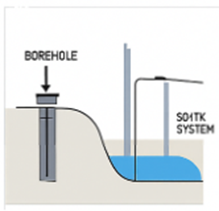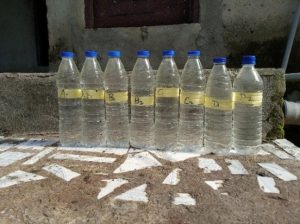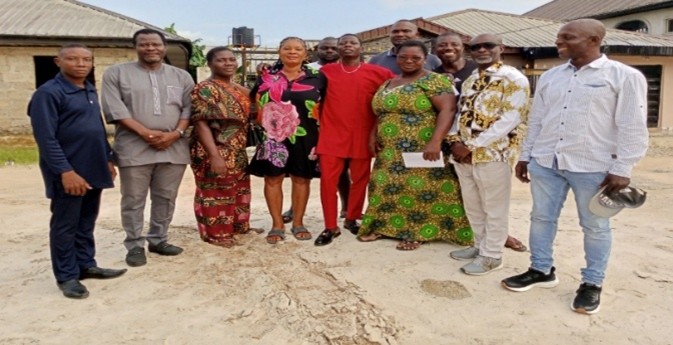When Paul Adjekota, a Science Fellow with Advocates for Community Alternatives (ACA), first visited Igbogidi in southern Nigeria, he noticed something alarming: boreholes drilled just a few feet from septic systems.
Concerned about possible contamination, Paul shared his observation with local leaders. The community agreed — something had to be done.
The Power of Participation
Over a dozen community members — including farmers, traders, youth, and elderly people, stepped up to be part of the solution. Under the guidance of Professor Oghenero Asuma, a hydrogeologist from Delta State University, they began learning how to collect and test water samples themselves.
“I don’t have much schooling,” one mother said during their first meeting, “but I know this is important for our children.”
What the tests revealed
 Water samples from six sources — four boreholes and two wells — revealed some serious concerns:
Water samples from six sources — four boreholes and two wells — revealed some serious concerns:
- pH levels ranged from 3.8 to 5.3, meaning the water was acidic and unsafe to drink.
- Coliform bacteria (1–7 cfu/ml) were present in all samples, indicating contamination likely from nearby septic systems.
- No heavy metals were found, offering some reassurance that there was no dangerous presence of lead, chromium, or nickel.
From information to action
Instead of creating fear, the test results sparked a wave of positive change:
- Families have begun boiling their water or using chlorine drops to make it safer for drinking.
- Some households have also started experimenting with periwinkle shells, a local resource, to help reduce acidity in their water.
- The community made a firm decision to enforce safe distances and proper depth when siting in new boreholes.
One youth leader shared, “If someone wants to drill a borehole tomorrow, I now know the right depth and distance to insist on.” Another added, “Before, I just fetched water. Now, I understand what makes water safe or dangerous.”
Planning for the future
Igbogidi isn’t stopping here. The community has committed to:
- Repeat water testing every three years
- Share their knowledge with neighboring villages
- Monitor future water projects closely
Already, nearby communities are starting to ask questions about their own water sources — a ripple effect of awareness and empowerment.
A Model for West Africa
Igbogidi’s experience is a powerful example of what can happen when science meets community action. In many parts of West Africa, poor borehole placement still threatens public health. But by combining expert guidance with local involvement, communities can take control — ensuring clean, safe water for generations to come.

Recent Comments